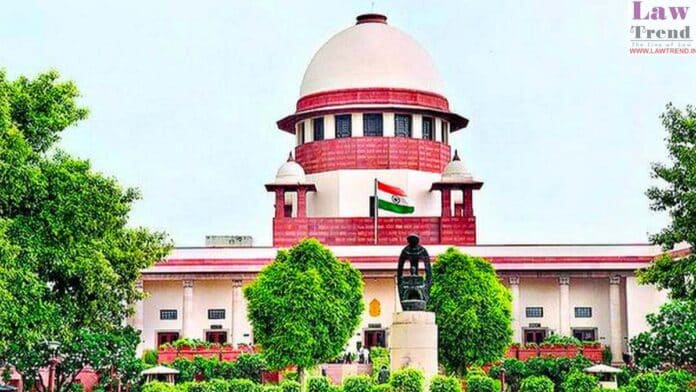The amicus curiae appointed by the Supreme Court to assist it in expeditious disposal of criminal cases against lawmakers Wednesday urged the apex court to issue directions for speedy trial of pending cases against them and also ask the high courts to review the number of judges required to preside over special MP/MLA courts.
“Special Courts may be directed to expedite the trial of pending cases.The Chief Justices of each of the High Court shall review the number of judges required to preside over Special Courts MP/MLAs,” said senior advocate Vijay Hansaria in a report submitted to the apex court.
The report suggested the high courts may transfer the presiding officers of the special courts only after the proposal has been approved by the chief justice of the high court concerned.

“Another judicial officer should be posted on the said post simultaneously, and the post of Special Court MP/MLA shall not remain vacant. At the time of transfer there is no case pending for final judgement, after conclusion of the arguments in the trial,” the report, filed through advocate Sneha Kalita, suggested.
The report claimed the Calcutta High Court in an affidavit filed on April 11 stated it was facing issues related to lack of IT facilities like connectivity, laptops, lack of power backup, security facilities etc. which led to the delay in trial of cases against MPs and MLAs.
It said only after due approval from the appropriate government can the high court go ahead with construction/ repair/ renovation projects for special courts.
The high court said the suggestion by the amicus that the courts dealing with cases against MPs and MLAs shall exclusively’ try these cases “is likely to hamper the disposal of other cases and would lead to uneven distribution of human resources.”
The Madras High Court, which oversees Tamil Nadu and the Union Territory of Puducherry, claimed there were 249 cases pending against lawmakers in Tamil Nadu as on February 28, of which 50 were five or more years old.
Also Read
Regarding the Union Territory of Puducherry, the affidavit claimed it had 23 cases pending against MPs and MLAs as on February 28, of which 12 were pending for more than five years.
The Madras High Court stated most of the suggestions made by the amicus have already been implemented by issuing administrative directions.
The Bombay High Court said it was monitoring expeditious disposal of trials and agreed with the suggestion of the amicus that no adjournment shall be granted at the request of a party, except where the circumstances are beyond the control of that party.
The court said as on February 28 there were 472 cases pending against MPs and MLAs.
The Sikkim High Court claimed in an affidavit filed on April 21 that there were no criminal cases pending against MPs/ MLAs.
“However, the suggestions given by the Amicus will be implemented, as and when the occasion arises,” it said.
The Madhya Pradesh High Court said as on March 31, there were 304 cases pending against lawmakers, of which 22 cases were pending for more than five years.
The Punjab and Haryana High Court, which oversees Punjab, Haryana and Chandigarh, stated it was monitoring the progress of trials and directions have been issued for expediting them. It said there were 100 cases against lawmakers pending in Punjab, 49 in Haryana and nine in Chandigarh.
The Andhra Pradesh High Court said steps were being taken for ensuring expeditious trial of cases.
There was one special court in Vijayawada for trial of cases against MP/MLAs, and in most of the cases, the accused were
cooperating by appearing before the special judge.
The Telangana High Court stated only one case was pending before the Special Sessions Court and 24 before the Special Judge at Magisterial level.
The apex court had earlier asked all high courts to furnish details of criminal cases pending for over five years against MPs and MLAs, and the steps taken for their speedy disposal.
It had also modified its August 10, 2021 order by which it had said judicial officers, who are holding trial of cases against law makers, should not be changed without the prior permission of the court.
On August 10, 2021, the top court had curtailed the power of state prosecutors and ruled they cannot withdraw prosecution against lawmakers under the Code of Criminal Procedure (CrPC) without the prior sanction of high courts.
It had expressed strong displeasure over the non-filing of requisite status reports by the Centre and its agencies such as the CBI, and indicated it would set up a special bench in the top court to monitor criminal cases against politicians.







